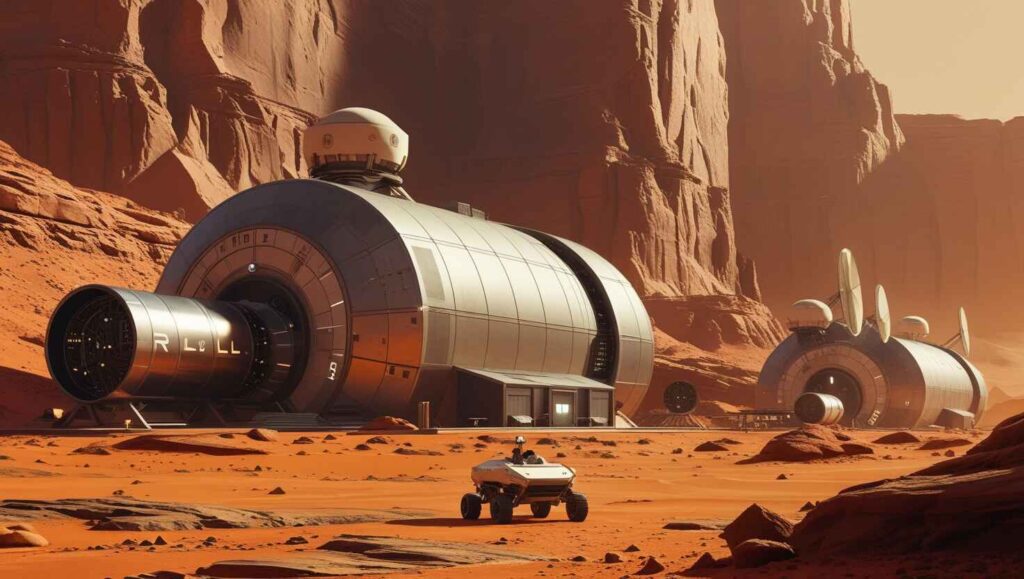Introduction: The new intersection of space and technology
Google and NASA have come up with a cool new AI tech. This system will help keep astronauts healthy during future Mars missions. It’s not just a step forward, but a game changer for space research and AI.
This system works specifically on Health Monitoring AI, which will ensure the safety of astronauts going on the Mars mission, especially at the time of long and dangerous Deepspace Missions.

Table of Contents
1. Why does Mars need special security measures?
This mission is more difficult for astronauts to Mars than going to the earth or the moon. It takes months and after arriving, they have to stay in an environment where there is no easy radiation, less gravity, and an easy way to return.
That is why the NASA AI Project and the Space Health Technology, developed under the Google AI Partnership will provide an intelligent partner who can help identify, diagnose and treat the disease in a timely manner.
2. AI’s role in protecting astronauts
This space travel AI will connect to the astronaut’s health system. It will constantly monitor their physical Condition, analyze data, and predict possible health problems.
For example:
How to Notice Radiation Exposure Early. •Keep a close watch for muscle and bone weakness when there’s no gravity. Use biometric data to check for mental stress and tiredness. Google machine learning skills and medical experiences in NASA space will be made a personal health profile for every astronaut.
3. How will Health Monitoring AI work?
The system has built-in safety features.
•It keeps track of your health by watching things like heart rate, blood pressure, oxygen, and sleep habits using real-time data from sensors.
•Predictable model: AI will recognize the dangers before becoming an emergency. •Automatic Tips: Food, Exercise, and Recommendations.
•Recent Help: In severe situations, he will contact the medical experts on the ground immediately.
This method not only protects astronauts but also improves the performance of the mission as it can be dealt with the help of this AI technology.
4. NASA AI Project and Google AI Partnership
This partnership is the beginning of a new era for DeepSpace Missions.
NASA has provided decades of research on human survival in space.
Google is adding its latest AI tech and computer abilities.
This system is constantly learning, and the more time it is, the more intelligent it will be – especially in the Mars mission environment.
5. Challenges of AI’s implementation in space
AI is helpful in space, but there are problems.
•Spacecraft don’t have much computing power.
•Because of communication delays, it can be hard to get real-time help from Earth, like when a signal has to travel all the way from Mars.
•The hardware has to hold up against radiation and extreme temperatures.
•To solve these problems, we’re going to need some new kinds of software and hardware.
6. Effects on the future of space research
The NASA AI project and the Google AI partnership can help push space research forward.
If this system is successful, all the future missions – whether on the moon or on another planet – will become an integral part.
AI can help astronauts in space, and that could bring changes to our lives on Earth.
Expect better healthcare in far-off places, quicker responses during crises, and innovative health devices for everyone.
7. A big step of man and technology
Space health technology can be not just a tool but also a shield to save many lives. Every astronaut who goes into space will act as a protector.
When NASA launches its first human Mars Mission, and Google will further improve its AI technology, this contribution will become an important moment in the history of space. This new tech should make getting to Mars safer and easier, despite the distance.




